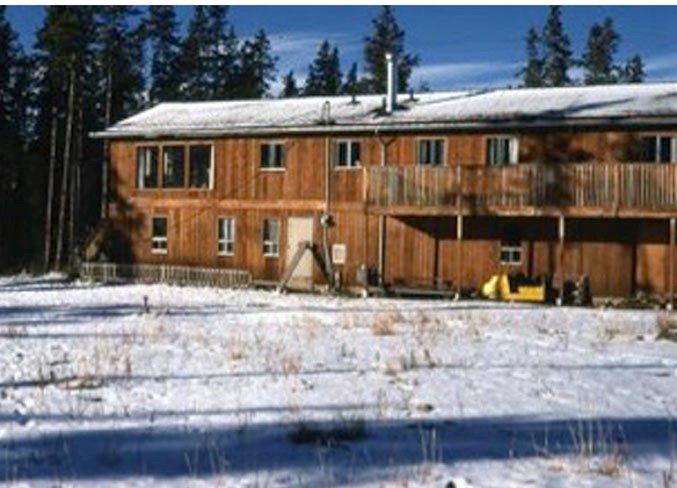If you walk roughly one kilometre west of a cattle guard in West Bragg Creek, you’ll come across a couple of concrete blocks that look like stone – mostly covered by grass – jutting out of the ground. They are the ruins of the third and final youth hostel erected in Bragg Creek - an area now being historically recognized by Parks Canada as the first region in the country to run hostels. Avril Derbyshire, who was in her 30s at the time, remembers being one of the first hostel parents of the most recent hostel in 1974. “The hostel was a long, low wooden structure, which accommodated 64 people in its dormitories and family rooms,” Derbyshire recalled. “It was a lovely place ... I cleaned it, looked after all the people coming in, registration, did things like that. I also organized events for them as well like the orienteering and hiking.” “Perhaps what I remember most is the beauty of that area and how familiar I became with the forest, the beaver ponds, the birds and insects and the wild flowers. You could roam for miles and never see a soul all day long.” The hostel burned down in 1984 and was never rebuilt. Derbyshire said she often revisits the site, her dog was even buried in the woodlands nearby. “I feel very proud that I had a very small role to play in it. People do inquire about it and now that it’s a historical site, I’d like to think that this is a way I contributed to helping people to have a really good experience out in the back country.” The very first of the inexpensive lodging was started in 1934 by the Barclay sisters, though it was not formally recognized as a hostel. It was only a 12x14 donated canvass tent pitched on borrowed land from local resident Ida May, but it was also the start of the Canadian Youth Hostel Association, a movement the Barclay sisters pulled from Europe. The Bragg Creek’s historic society said the sisters’ motto was “to enable youth to find wholesome companionship … travelling inexpensively, and acquiring a knowledge of their neighbour’s land and customs.” The following season, a frame cabin was built on land donated by Tom Fullerton, which acted as the first official hostel site. Fullerton helped blaze trails for the youth passing through so they could hike to Priddis and Jumping Pound. That hostel closed in 1947. The hostel movement in Bragg Creek sparked a trend throughout the country. Parks Canada unveiled a plaque last week denoting national historic recognition for Bragg Creek, which will sit just off White Avenue in the hamlet’s business area. “By creating the country’s first youth hostel and establishing a national youth hostel organization, the Barclay sisters made it possible for countless adventurous Canadians and international visitors to discover Canada’s vast wilderness,” said Catherine McKenna, minister of environment and climate change. “The Canadian Youth Hostel Association helped define our diverse heritage and is an inspiration to explore our great country. On behalf of the Government of Canada, I am pleased to commemorate the national historic significance of the Canadian Youth Hostels Association.”




